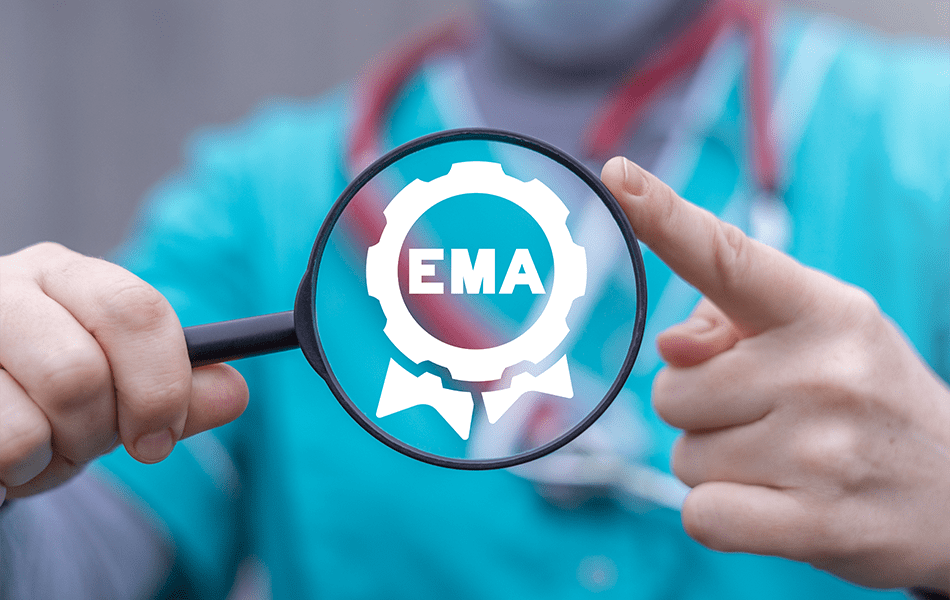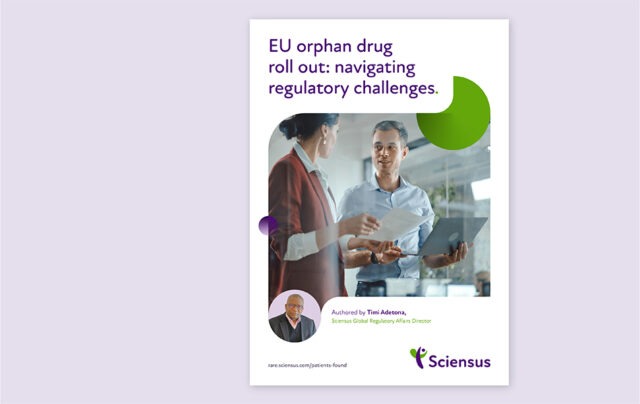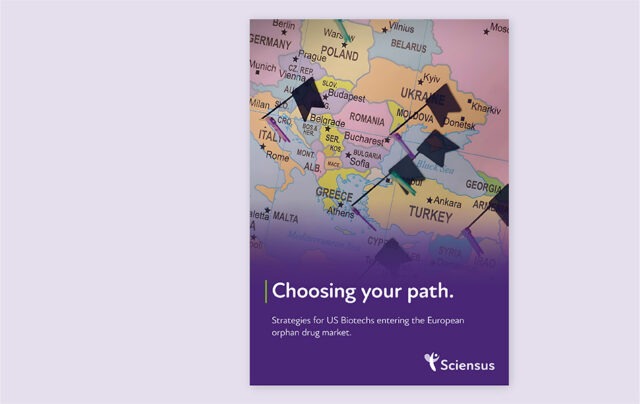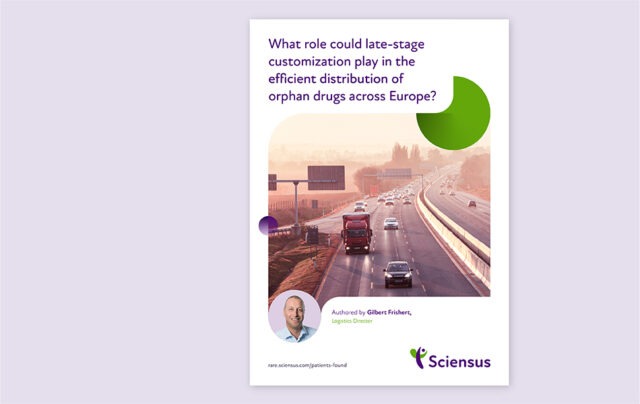
European drug approval pathway
Launching a new orphan drug in Europe for the first time can be a daunting prospect for international biotech and pharma companies. All drugs, or medical products, must have European Union (EU) or national marketing authorization before they can be marketed or sold in the region.
However, the 27 nations which make up the EU bring 24 different languages, and almost as many diverse cultures, healthcare systems, regulations, and reimbursement approaches.
This can all be incredibly complicated to navigate, but the potential rewards of achieving European drug approval for your product are considerable.

What is the European Medicines Agency (EMA)?
The European Medicines Agency (EMA) is a decentralized agency of the EU, responsible for the scientific evaluation, supervision, and safety monitoring of medicines in the EU and the countries of the European Economic Area (EEA).
While the EMA can approve medication for use, each country is free to develop local guidelines for the product’s use and enter into separate negotiations around pricing and reimbursement.
What does EMA approval mean?
In the EU, there are four different procedures for obtaining marketing authorization or drug approval:
- National procedure
- Mutual recognition procedure
- Decentralized procedure
- Centralized procedure. The centralized procedure is mandatory for products with orphan drug designation, biopharmaceuticals, and other innovative medical products. It includes an application for a single marketing authorization that covers all EU countries, plus Norway and Iceland.
The EMA’s scientific committees can take up to 210 days to give their recommendation on whether the drug should be approved. This recommendation is then passed to the European Commission, which is responsible for granting marketing authorization.
The EMA can also recommend conditional marketing authorization on an exceptional basis for drugs that meet unmet medical needs but that lack the clinical data needed for the centralized authorization process. These drugs must:
- Support treatment, prevention, or medical diagnosis of seriously debilitating or life-threatening diseases, or
- Be for emergency response to public health threats, or
- Be designated as an orphan drug.

Is EMA approval equivalent to FDA approval?
While similar in theory, EMA and FDA approvals are quite different in practice.
FDA approval gives manufacturers the green light to sell their product throughout the United States. However, once a product receives EMA approval, it is still necessary to engage each member state to agree on usage, pricing, and reimbursement in the local market.
To increase the availability of drugs and improve equality throughout Europe, there is an EU directive that enables member states to place a drug into the market without marketing authorization, provided it has been approved for use by another member state. Products can also be brought to market faster through expanded access and compassionate use programs.
Also, in the UK, developers of new medicines can now submit applications via the Medicines and Healthcare Products Regulations Agency’s (MHRA) new International Recognition procedure (IRP). The IRP allows the MHRA to take into account the expertise of regulators in other countries when authorizing medicines. Its goal is to create a more rapid, efficient, and cost-effective process for applicants.
EMA orphan designation and European marketing authorization
Achieving orphan designation for your product can be extremely valuable when it comes to moving through the European regulatory process. It can also lead to significant discounts on fees for small to medium-sized companies.
The EMA is responsible for reviewing applications for orphan designation. To qualify for orphan designation in the EU, a medicine must meet several criteria:
- It must be intended for the treatment, prevention, or diagnosis of a disease that is life-threatening or chronically debilitating, and
- The condition must affect fewer than five in 10,000 people in the EU or it must be unlikely that marketing of the medicine would generate sufficient returns to justify its development, and
- No satisfactory method of diagnosis, prevention, or treatment of the condition can be authorized, or, if a method exists, the medicine must be of significant benefit to those affected by the condition.
All applications for orphan designation are reviewed by the EMA’s Committee for Orphan Medicinal Products (COMP). The evaluation process takes up to 90 days. As with marketing authorization, the EMA sends its recommendation to the European Commission, which is responsible for granting orphan designation.

Sciensus’ market access services
Our expert team can provide support on every aspect of the European drug approval process, such as:
- Analysis of data and evidence to support:
- Orphan designation applications
- Marketing authorization applications
- Health technology assessment appraisals
- Development and submission of applications
- Pricing and reimbursement negotiations
- Expanded access programs
Get in touch
Thank you for your interest in Sciensus. Whether you’re seeking information, partnership opportunities, or want to refer a patient, our dedicated team is here to assist you. Please fill out the form on the right, and one of our multi-lingual representatives will get in touch with you promptly.




